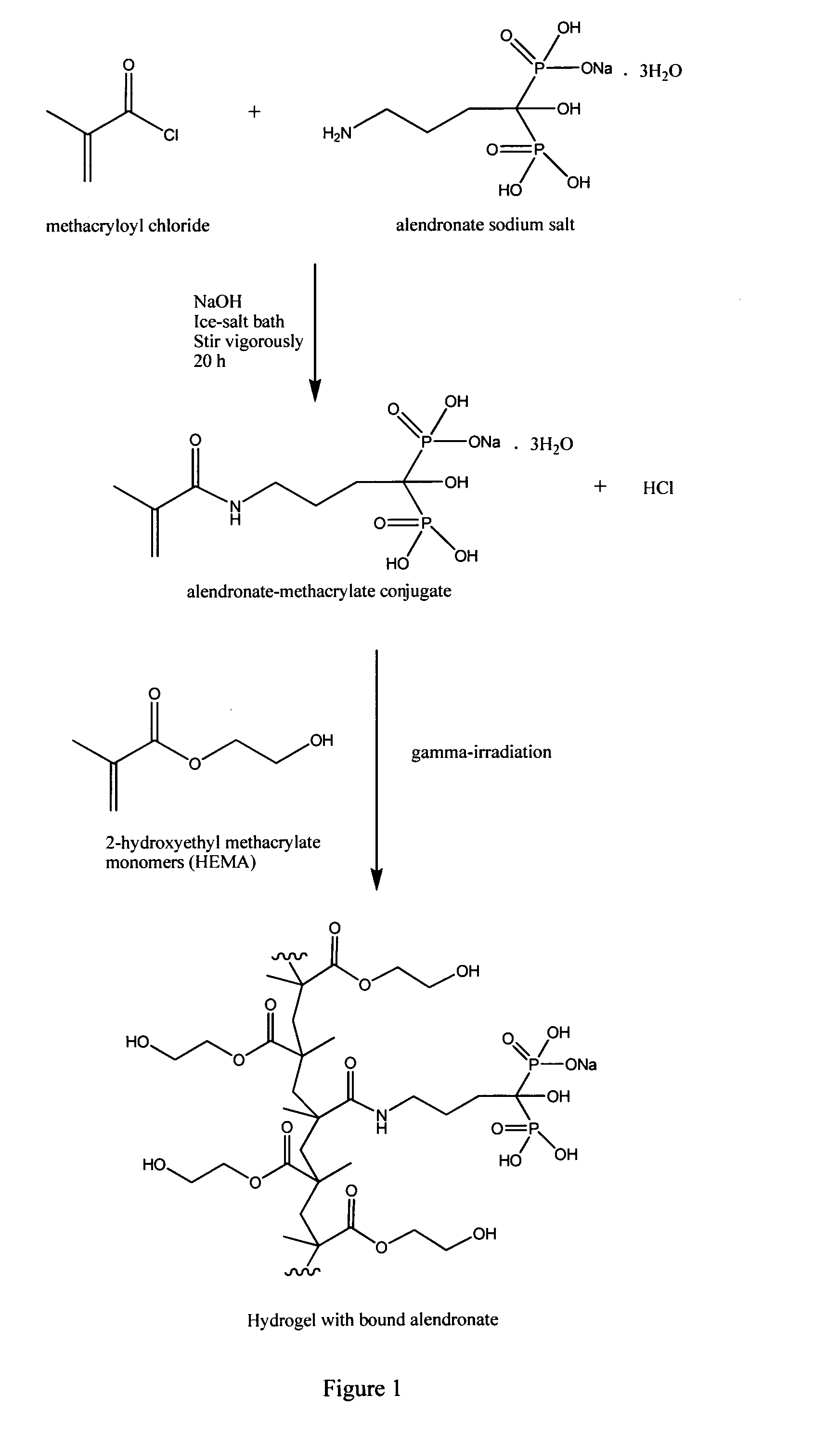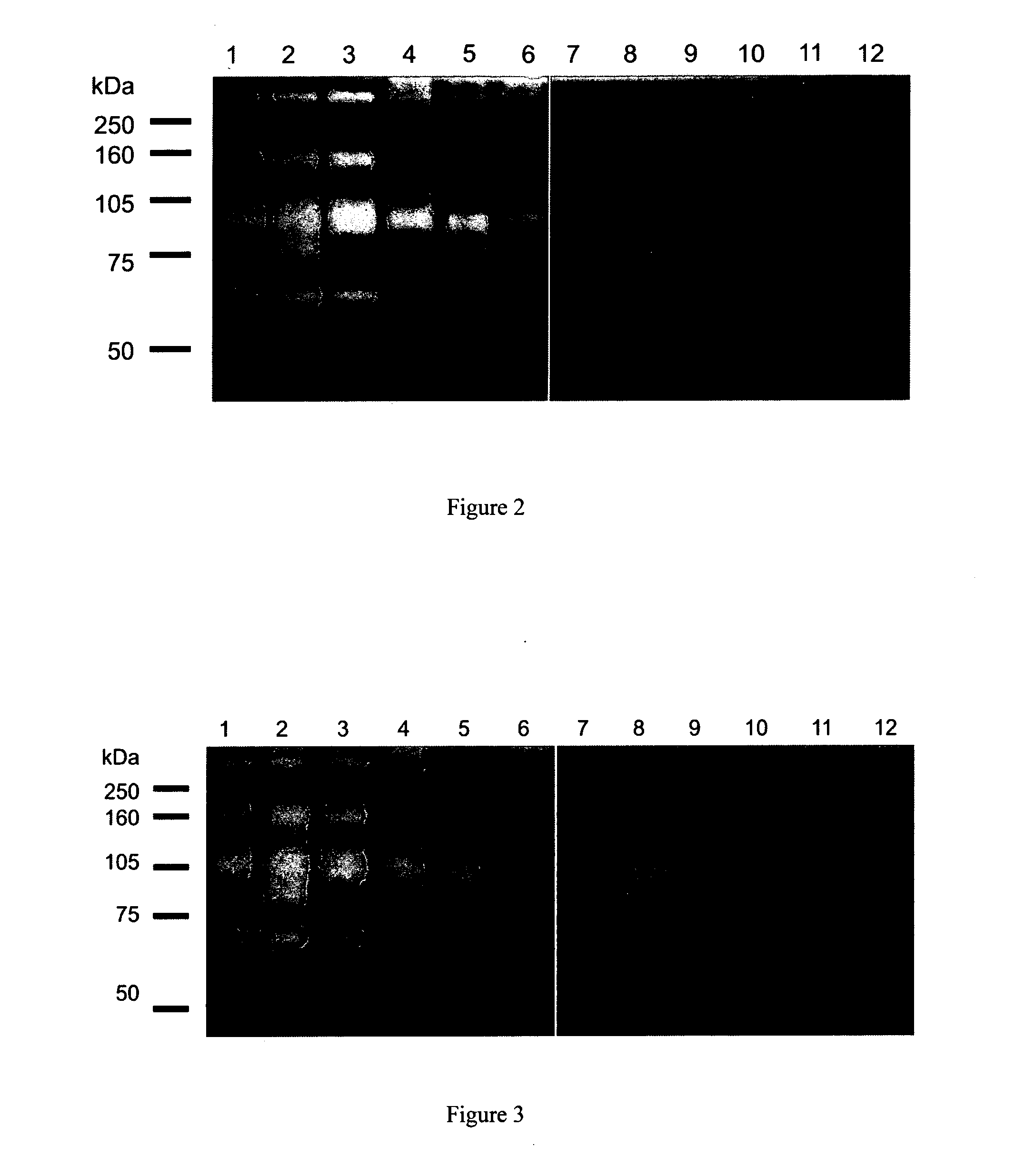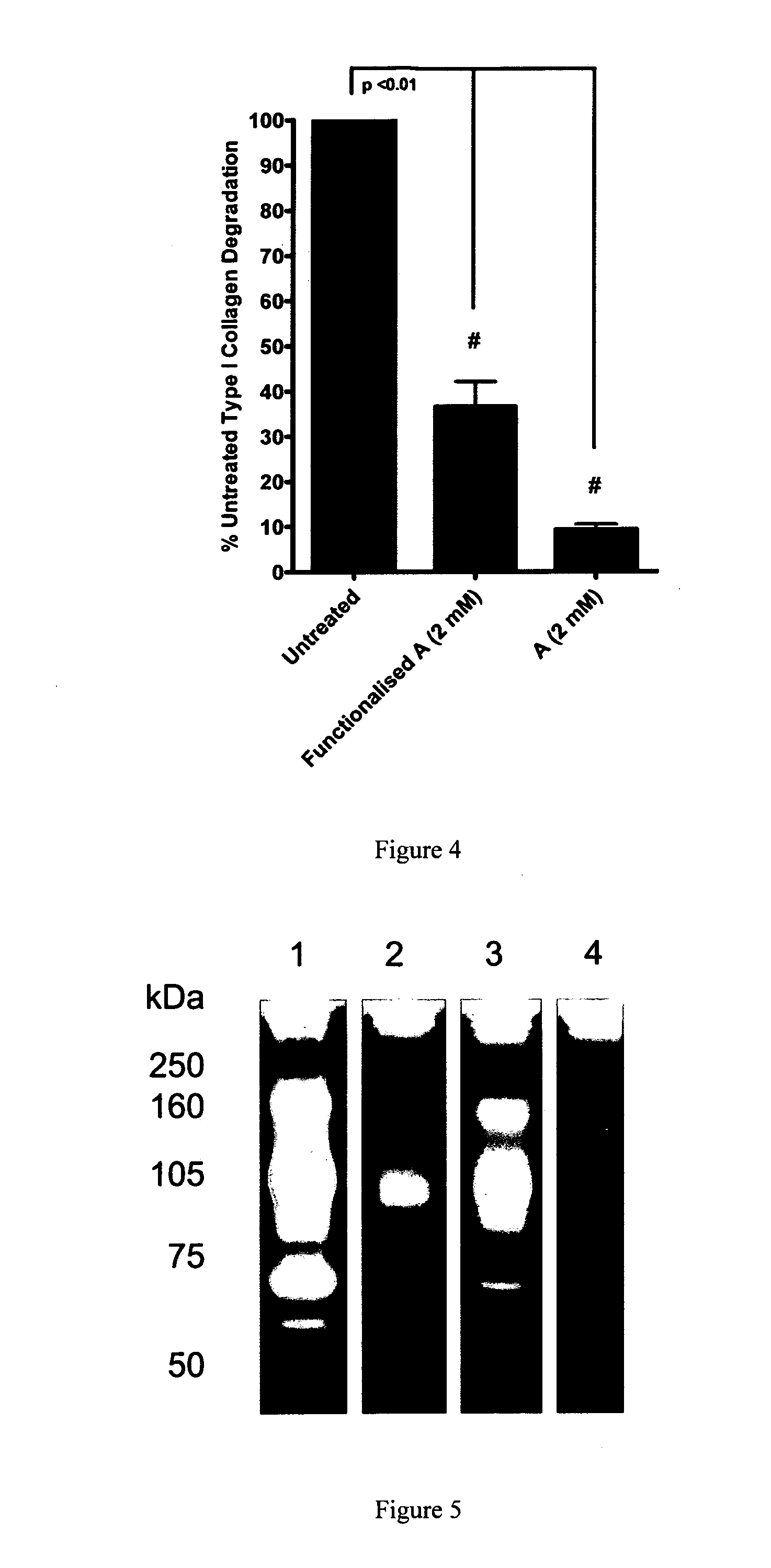Wound repair composition and method
- Summary
- Abstract
- Description
- Claims
- Application Information
AI Technical Summary
Benefits of technology
Problems solved by technology
Method used
Image
Examples
examples
[0108]MMP Inhibition with Alendronate
[0109]Since the inventors have identified that MMP-9 is the predominant protease involved in degrading the extracellular matrix in chronic wound fluid, a bisphosphonate was tested for its ability to inhibit MMP, particularly MMP-9, activity. Alendronate (as its sodium salt) was chosen as the representative bisphosphonate.
[0110]Alendronate sodium salt was incubated with chronic wound fluid samples at a concentration of 2 mM, at 37° C., for 24 hours. Collagen Type 1 zymography was then employed to identify protease activity. Collagenase sensitivity was identified as clear bands against a dark background in zymograms and could be quantitated by densitometric analysis.
[0111]FIG. 2 shows the results of this assay. Lanes 1-6 are chronic wound fluid samples from six different patients with 500 ng of total protein loaded per sample. Lanes 7-12 represent the same chronic wound fluid samples 1-6 with 500 ng of total protein loaded per sample after incubati...
PUM
 Login to View More
Login to View More Abstract
Description
Claims
Application Information
 Login to View More
Login to View More - R&D
- Intellectual Property
- Life Sciences
- Materials
- Tech Scout
- Unparalleled Data Quality
- Higher Quality Content
- 60% Fewer Hallucinations
Browse by: Latest US Patents, China's latest patents, Technical Efficacy Thesaurus, Application Domain, Technology Topic, Popular Technical Reports.
© 2025 PatSnap. All rights reserved.Legal|Privacy policy|Modern Slavery Act Transparency Statement|Sitemap|About US| Contact US: help@patsnap.com



